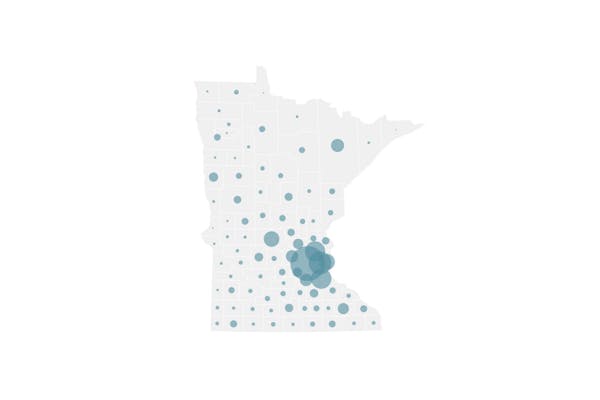WASHINGTON — The coronavirus vaccine made by Pfizer and BioNTech provides strong protection against COVID-19 within about 10 days of the first dose, according to documents published Tuesday by the Food and Drug Administration before a meeting of its vaccine advisory group.
The finding is one of several significant new results featured in the briefing materials, which include more than 100 pages of data analyses from the agency and from Pfizer. Last month, Pfizer and BioNTech announced that their two-dose vaccine had an efficacy rate of 95% after two doses administered three weeks apart. The new analyses show the protection starts kicking in far earlier.
What's more, the vaccine worked well regardless of a volunteer's race, weight or age. While the trial did not find any serious adverse events caused by the vaccine, many participants did experience aches, fevers and other side effects.
On Thursday, FDA's vaccine advisory panel will discuss these materials in advance of a vote on whether to recommend authorization of Pfizer and BioNTech's vaccine.
Pfizer and BioNTech began a large-scale clinical trial in July, recruiting 44,000 people in the United States, Brazil and Argentina. Half of the volunteers got the vaccine, and half got the placebo.
New coronavirus cases quickly tapered off in the vaccinated group of volunteers about 10 days after the first dose, according to one graph in the briefing materials. In the placebo group, cases kept steadily increasing.
Despite the early protection afforded by the first dose, it's unclear how long that protection would last on its own. Previous studies have found the second dose of the Pfizer-BioNTech vaccine gives the immune system a major, long-term boost, an effect seen in many other vaccines.
The efficacy of the vaccine after the first dose is about 52%, according to Dr. William C. Gruber, senior vice president of Pfizer Vaccine Clinical Research and Development. After the second dose, that rises to about 95%.
Even if the vaccine is authorized by the FDA, the trial will continue. In the briefing documents, the companies said they would encourage people to stay in the trial as long as possible, not knowing whether they got the vaccine or the placebo, so that the researchers could continue to collect information about whether the vaccine was safe and effective.

Want to share info with the Star Tribune? How to do it securely

'Safe recovery sites' would offer syringes, naloxone and more to people using drugs. The plan could be in peril.
New Minnesota GOP leaders seek peace with party's anti-establishment wing

Who is Republican Lisa Demuth, Minnesota's first House speaker of color?

